Paper-plastic, of which quilling is a part, allows you to create whole paintings from ordinary paper with any subject. A family tree can be folded from voluminous openwork patterns, which will help preserve part of the family history. You can do this with children, spending just a couple of fun evenings. It will be not only interesting for children, but also useful, because when doing quilling, fine motor skills, imagination develop, and self-confidence grows in them.
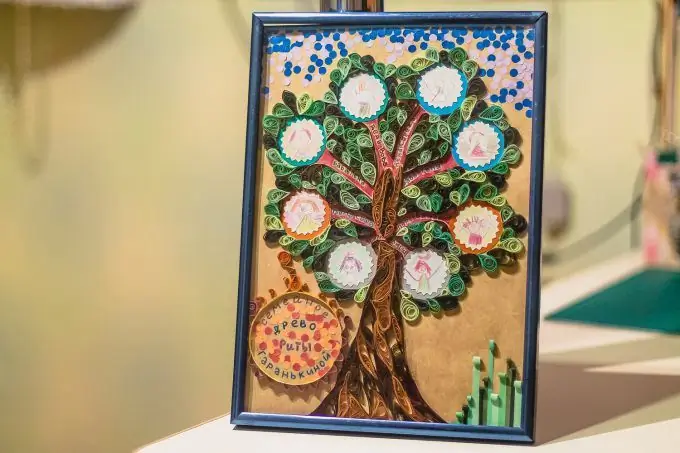
It is necessary
- - quilling tools (bifurcated stick, template, awl, pliers, pins)
- - A4 sheet of paper;
- - hole puncher;
- - scissors - simple and curly;
- - strips for quilling of different widths;
- - colored paper tinted;
- - cardboard - colored and white;
- - PVA glue;
- - a brush for glue;
- - hairbrush;
- - the pencils;
- - eraser;
- - frame.
Instructions
Step 1
Using curly scissors, cut out circles on which the child can draw portraits of their loved ones. Tell me what characteristic features this or that relative has. Instead, you can glue photographs over them.
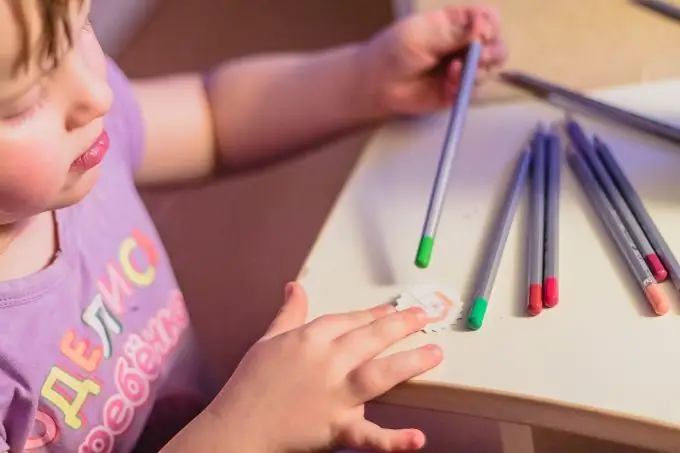
Step 2
Draw the outlines of the future tree on the base sheet, glue portraits at the ends of the branches, which will become apples. And on the branches themselves, write the names. All inscriptions must be done before you start gluing the outlines and rolls!
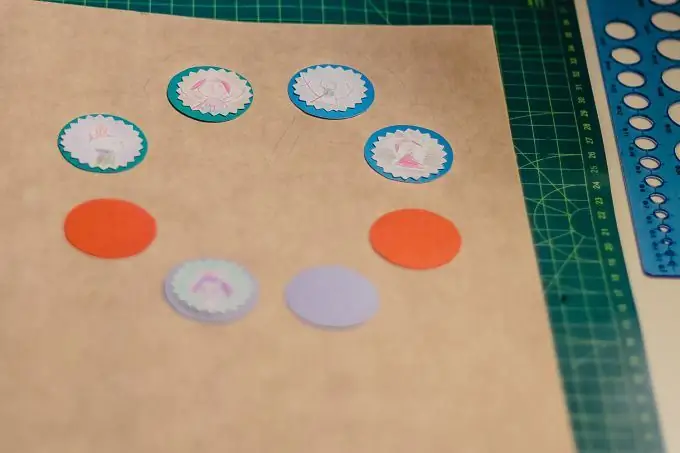
Step 3
It's time to glue the contours of the branches and trunk. Apply glue to the end of the brown strip and attach it to the sheet in the place of the drawn outline. Press for half a minute. PVA should be thick so that the paper does not get wet and sticks securely to the base.
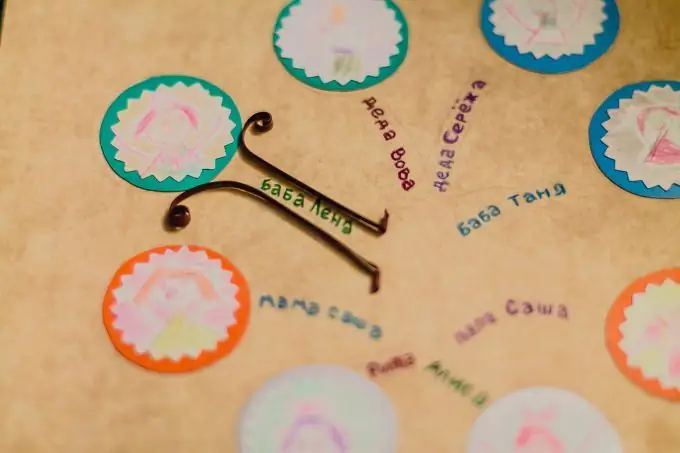
Step 4
Make rolls from strips of different brown shades. To do this, pinch the tip of the strip in the sting of the stack and wind it very tightly onto the stack, pressing the edge to your finger. Attach a stack with a roll to the template of the required diameter and release the tip.
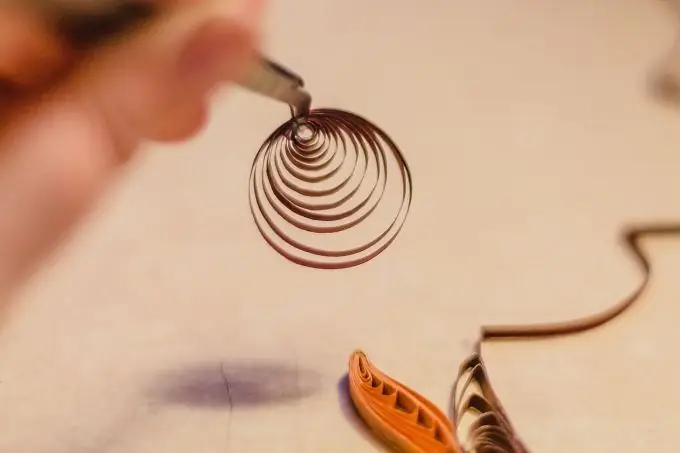
Step 5
When the roll unwinds a little, drop PVA glue on the tip of the strip and glue it to the roll. Using pins or special templates, such a roll can be turned into a drop, leaf, triangle, etc.
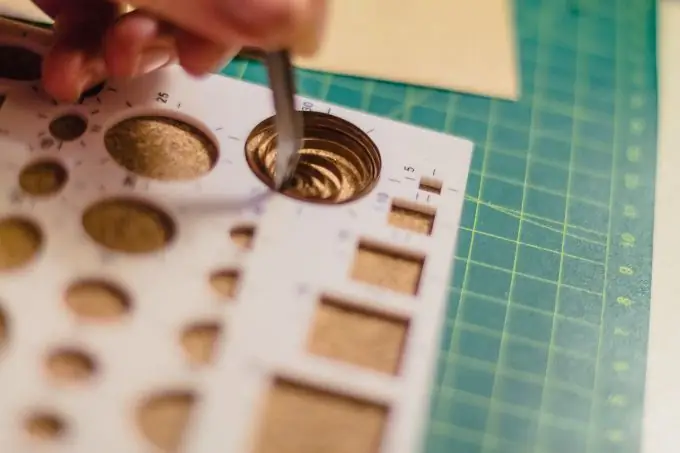
Step 6
Remove the roll and squeeze it on one side (drop) or two (leaf or eye). This tree is made from just such simple shapes in quilling.
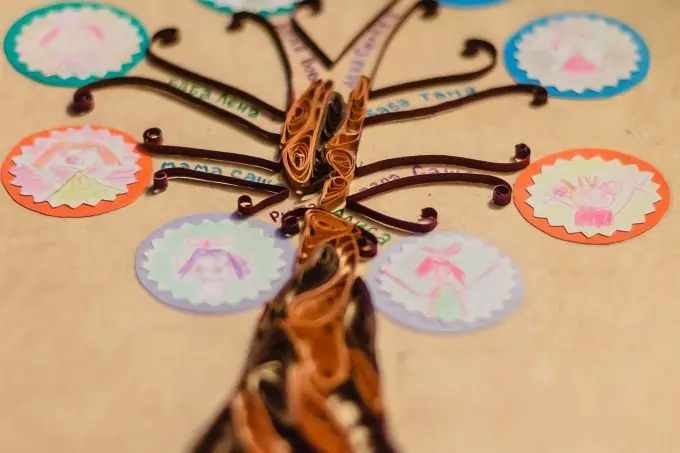
Step 7
Lay out the barrel within the contours, lubricating the bottom of the roll and sides with glue. The crown of leaves is made in a similar way - rolls-drops of different sizes from strips of different shades of green.
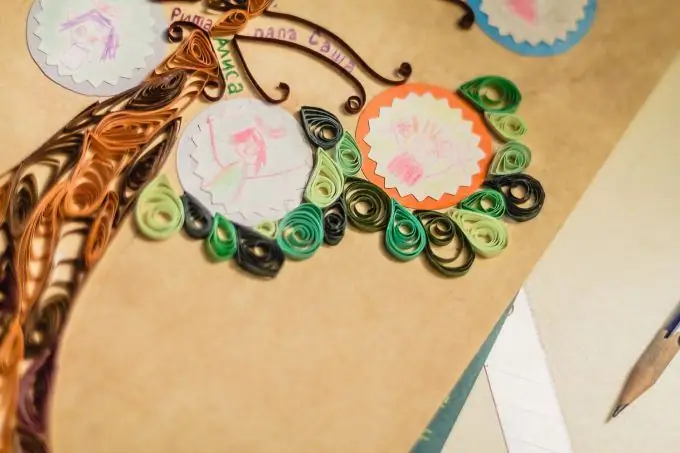
Step 8
After the design of the tree itself, you need to fill in the background. This is where a hole punch and tinted paper come in handy. The sky can be made from circles of purple, blue and blue.

Step 9
The bottom of the composition should also not be left blank. The weed can be made from the same strips that were used to decorate the crown. To do this, twist one end of the strip into a spiral, and glue the other to the base. If the width and length of the stripes in the design of the grass are different, this will make the picture more interesting.
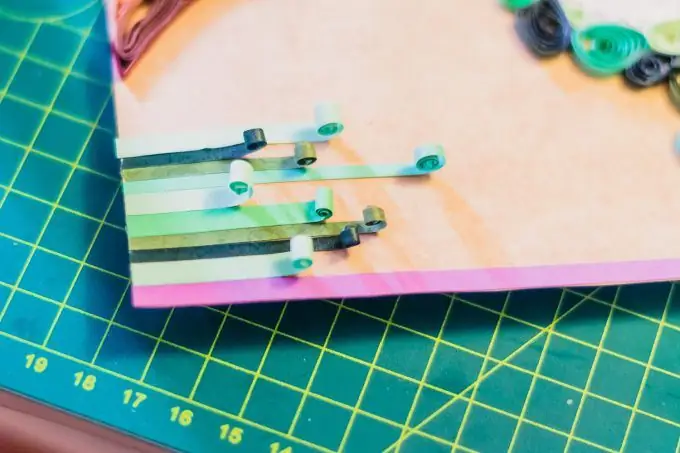
Step 10
At the bottom, you can also make a title block with the name of the owner of the family tree. To do this, wind the strip around a bottle or glass, fix the end with flat glue and let it dry. During this time, you must fill in the circle (inscription). Carefully remove the resulting ring and glue it to the base with the end side.
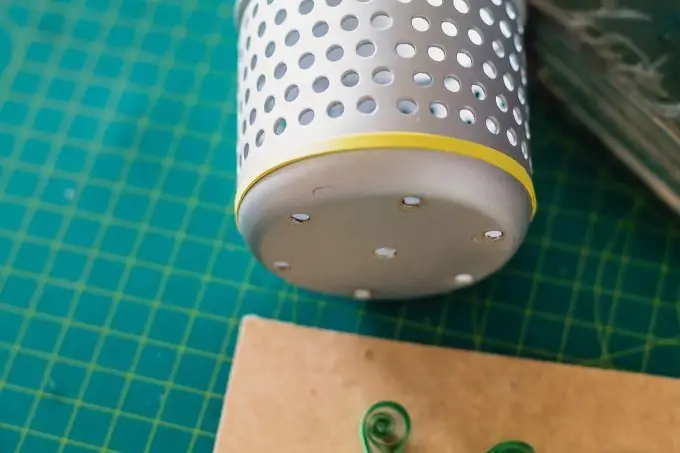
Step 11
Use a simple comb to shape the strip into an even, wavy curve and tape it to the ring around the name.
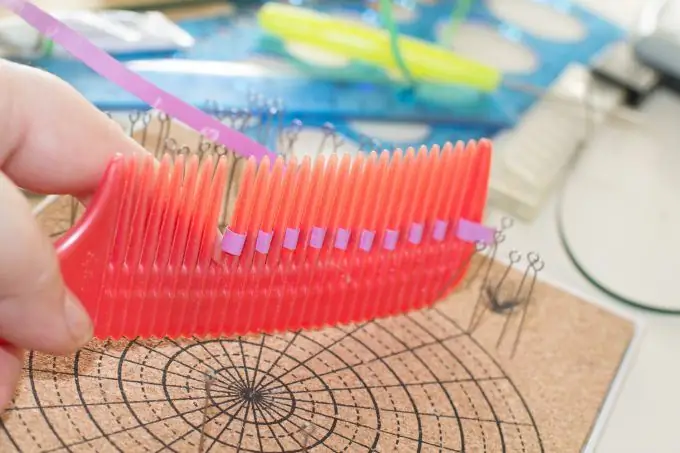
Step 12
After completing the composition, you can glue strips around its edge to make the picture look complete. Frame the family tree.






